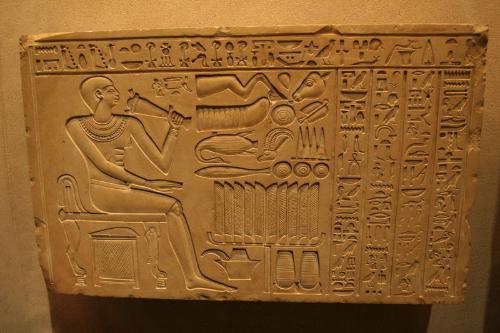Similarities found between ancient Egyptian, Chinese

Egyptian hieroglyphs
The formation of most ancient Egyptian words followed a similar pattern to that of Chinese pictophonetic characters, a scholar pointed out at the first International Seminar on Chinese Egyptology hosted by Northeast Normal University a few days ago. About 20 scholars from seven countries, including China, Britain, Germany and Sweden discussed the topic.
Ancient Egyptian writings and Chinese oracle bone inscriptions have semantic components and thus are referred to as hieroglyphs. "The determinatives of Egyptian hieroglyphs serve the same function as the radicals of Chinese characters," Wang Haili, a professor from Beijing Normal University said at the meeting. "For instance, ancient Egyptian words with sparrow symbols acting as determinatives mostly had negative meanings. Coincidentally, Chinese characters with the radical for dog also have negative meanings."
Wang's comparison of determinatives and radicals distinguishes his study from previous research, which had focused on glyph, semantic meaning and word-building. The two cultures attributed special emotional connotations to certain animals, leading to a better understanding of the two civilizations, he said. The idea was heatedly debated by other attendees to the meeting. They said that the approach is intriguing despite some shortcomings in the comparison.
The meeting marked the first time Chinese Egyptologists have met on a nationwide scale to exchange ideas, said Li Xiaodong, a professor from the Institute for the History of Ancient Civilizations at Northeast Normal University.
In addition to progress, scholars also spoke of some obstacles that hinder the development of Chinese Egyptology. "In this field, there are a small number of scholars in China. The research is fragmented and there is a lack of communication," said Jin Shoufu, a professor from Capital Normal University.
Ian Shaw, an Egyptologist at the University of Liverpool offered suggestions to help Chinese Egyptology have a greater global impact. He recommended that Chinese scholars take part in the field research of Egyptian archaeology, monitor studies in other countries, and introduce Chinese perspectives and methods to the international community.
Geng Xue and Yuan Huajie are reporters at the Chinese Social Sciences Today.
